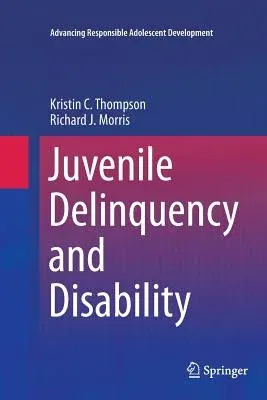This book discusses the relationship between juvenile disability and
delinquency, including characteristics of youth with disabilities, how
disability relates to delinquency, and its impact during a youth's
involvement with the juvenile justice system. The book details the
relationship between developmental, cognitive, psychological, and
educational disorders--specific conditions including ADHD, bipolar
disorder, and autism spectrum disorder--and delinquency in light of both
their overrepresentation among youth offenders and the uninformed
handling of these youth within the court system. Case studies illustrate
the complexities in the processing and placement of these youth
offenders, as well as highlight the barriers to delinquent youth
receiving appropriate treatment, and their increased risk of
reoffending. From this robust knowledge base, the authors make expert
recommendations for improving the juvenile justice system at the
practice and policy levels to better serve this population.
This authoritative volume:
- Identifies characteristics and risk factors associated with juvenile
delinquency.
- Reviews evidence relating developmental, mental health, and other
disorders to juvenile offending.
- Describes the implications of disabilities in key areas such as
offending, risk assessment, competency, and outcomes.
- Examines the role of disability law in the juvenile justice system.
- Offers guidelines for professionals to use this knowledge in their
work.
Juvenile Delinquency and Disability is an essential resource for
researchers, scientist-practitioners, and graduate students in clinical,
counseling, and school psychology, criminology and criminal justice,
child psychiatry, educational policy and politics, developmental
psychology, and social work.


